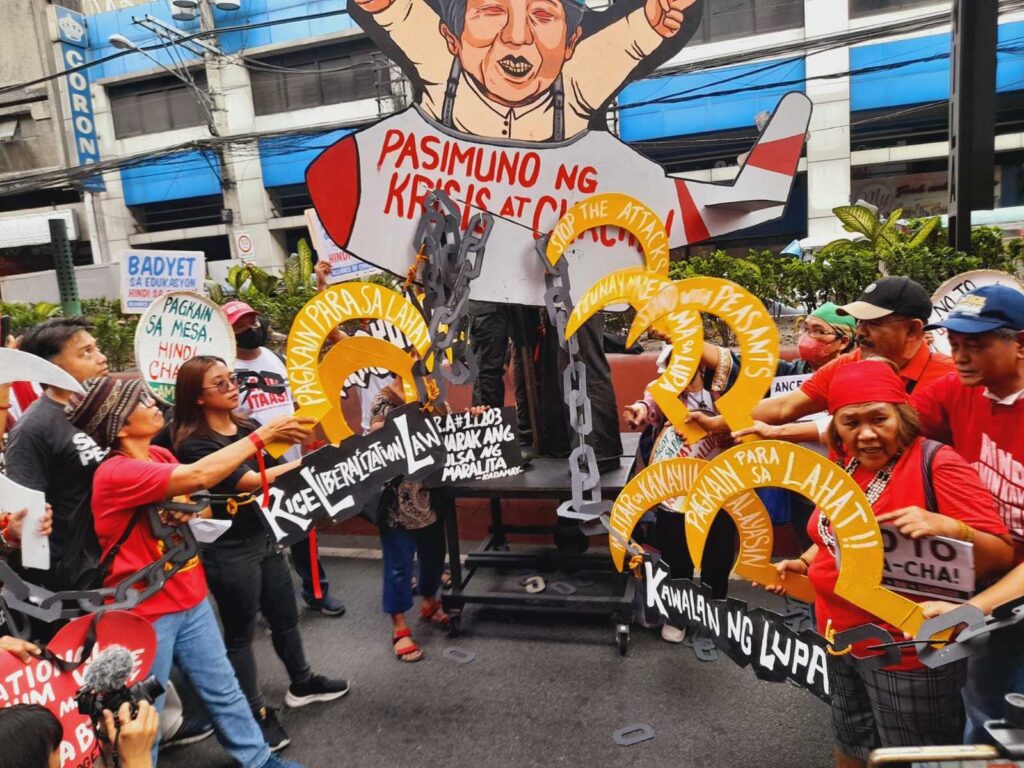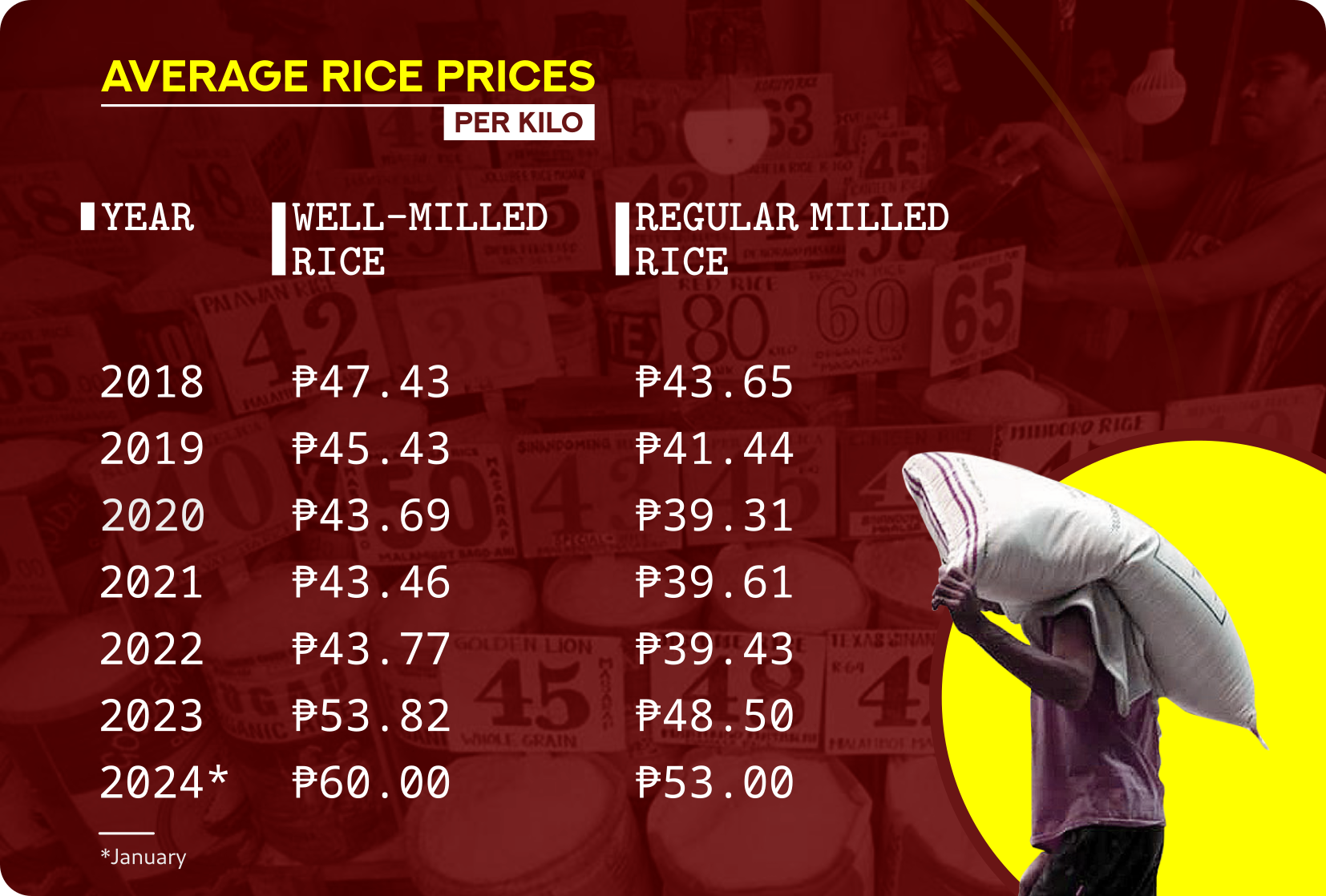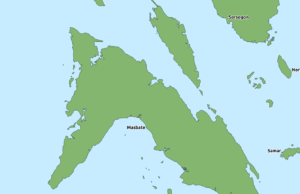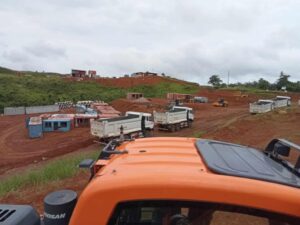Farmers continue to demand the repeal of 5-year rice import liberalization law


Farmers’ and women’s groups launched a picket in Mendiola, Manila, yesterday, February 14, to call for the repeal of the Rice Liberalization Law (RLL), which was enacted on the same day in 2018.
Rice inflation hit 19.6% at the end of 2023, the highest in the past 14 years. Compared to 2022, rice prices increased by almost ₱10 per kilo last year.
In 2024, rice prices again increased by ₱1-₱2 per kilo. The Department of Agriculture pegged the price of local rice at ₱53-₱60 per kilo, while imported rice was at ₱56-₱65 per kilo at the end of January. According to the Bantay Rice group, prices reached ₱75 per kilo in some parts of the country.
“Rice liberalization is an utter failure,” according to Danilo Ramos, Kilusang Magbubukid ng Pilipinas (KMP) president. “The price of rice has skyrocketed while farmers are suffering unprecedented losses due to very expensive farm inputs.”
He said that the ₱455 million Rice Competitiveness Enhancement Fund (RCEF) generated from imports is not enough to cover the losses of farmers. Worse, the funds have yet to trickle down to them, despite the state started its collection five years ago.
Even before it was enacted, farmers had already opposed the RLL. According to their studies, in the first three years of the law’s implementation, rice farm gate price decreased by an average of 19.5%.
In studies by Bantay Bigas, the total value of rice products fell by 17.22% (from ₱385 billion in 2018 to ₱318.8 billion in 2020), despite the increase in volume or harvests by farmers in 2020. Since rice farm gate prices dropped to ₱20/kilo, local farmers have lost an estimate of more than ₱68 billion that year.
Despite this and amid rising prices of rice, the reactionary state continues to insist on importing rice.
In January, the Marcos regime, through House Speaker Martin Romualdez, entered into an agreement with Vietnam for the country to import up to 2 million metric tons annually for the next five years, whether needed or not. Up to 90% of rice imported by the Philippines comes from Vietnam.
Instead of unrestrained imports, the state should boost local production and allocate adequate subsidies to the agricultural sector, according to farmers.
“We repeat—genuine land reform, and not rice importation, will solve the constant rice crisis,” according to KMP. Only in this way can the country achieve food security and real economic development.











